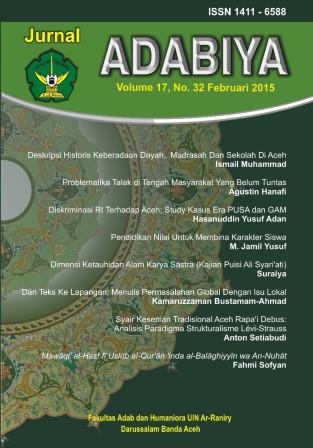References
Baihaqqi dkk, 1981. “Bahasa Gayo” Jakarta: Pusat Pembinaan dan Pengembangan Bahasa Departemen Pendidikan dan Kebudayaan
Budi, Agus wibowo dkk 2007 “Tradisi Makan dan Minum pada Masyarakat Gayo”, Banda Aceh: Balai Pelestarian Sejarah dan Nilai Tradisional.
Gustini, Heni Nuraeni 2012 “Studi Budaya di Indonesia” Bandung: Pustaka Setia.
Kurdi, Muliadi 2005 “menelusuri karakteristik masyarakat aceh” Banda Aceh: PeNA.
Lestari, Titit “Keragaman Kuliner Gayo “SUWANo.15/2012”, Banda Aceh: Balai Pelestarian Sejarah dan Nilai Tradisional.
Majelis Adat Gayo, 2016 “masakan dan anyaman Khas Gayo”, Bener Meriah
Nazar, Muhammad “Guide Book Pesona Wisata Aceh” Banda Aceh: Dinas Kebudayaan dan pariwisata Aceh.



